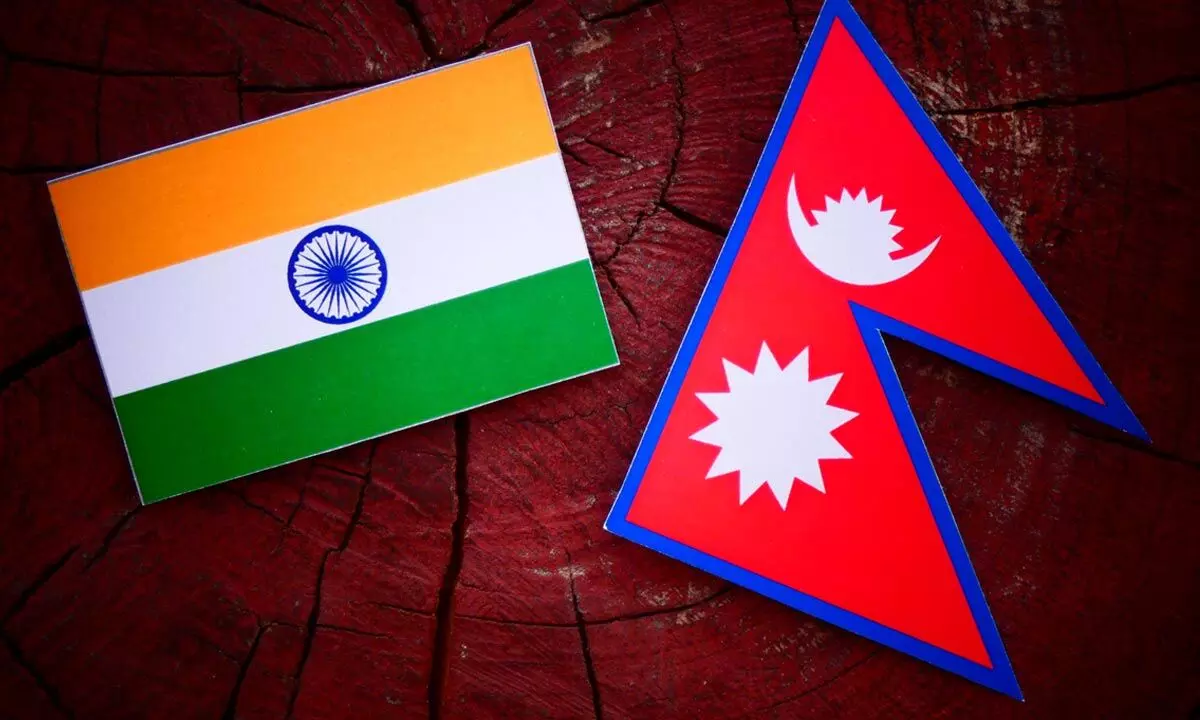Live
- They always want me to win, and now I feel lucky to have been offered a story like ‘Zebra’: Satyadev Kancharana
- ‘Democracy first, humanity first’: PM Modi in Guyana's parliament on two countries' similarities
- PKL Season 11: Telugu Titans register third straight win to top standings
- Is Pollution Contributing to Your COPD?
- NASA Unveils Underwater Robots for Exploring Jupiter's Moons
- Additional Central forces arrive in violence-hit Manipur
- AR Rahman and Saira Banu’s Divorce: Legal Insights into Common Issues in Bollywood Marriages
- 82.7 pc work completed in HPCL Rajasthan Refinery area: official
- Curfew relaxation extended in 5 Manipur districts on Friday
- Tab scam prompts Bengal govt to adopt caution over fund disbursement
Just In
India needs to more vibrantly connect with Nepal


The return of KP Sharma Oli government in Nepal has a larger reckoning
The return of KP Sharma Oli government in Nepal has a larger reckoning. Those concerned in India should take a deep breath and reflect on the tumultuous changes of heads of government due to opportunistic alliances in power games. Nepal’s strategic position makes it imperative, too, in wake of Chinese influence due to its strong economic heft looming large on the Himalayan kingdom politics. Just when India begins to have a sigh of relief over thaw in relations following resumption of warm ties with PM Pushpa Kamal Dahal ‘Prachanda,’ his Communist Party of Nepal (Maoist Centre) government fell like a pack of cards, as KP Oli’s Communist Party of Nepal (Unified Marxist-Leninist) broke off with it and tied up with Shed Bhadur Deuba of Nepali Congress to grab power. Deuba who had helped Prachanda become the PM hoped the ally would respect the arrangement of handing over power to him in the latter-half of the term, but in vain. Oli will be in power as the PM for the third time, for a year or so, and initiate constitutional amendments before letting Deuba helm the government and lead coalition in the 2027 elections. Oli’s regime had in the past during 2015-16 and 2018-21 snubbed India, moved closer to China.
The first king of the kingdom of Nepal Prithvi Narayan Shah had said was a “Yam between two Boulders (China, India).” India and Nepal have for long been considered “world’s closest neighbors.” They have very strong civilian, cultural and trade engagements. Nepal faces India on east, west and south. Its army chief is an honorary general of the Indian Army and vice versa. It’s a dominant Hindu community. Thousands of Nepal’s Gurkhas serve in the Indian Army. Both peoples can work or reside in either country. Trouble started for India after the abolition of the monarchy in Nepal in 2008. No government has since got majority and instability continues to plague the politics, with the result that there have been a dozen governments in the last 16 years. Prachanda government lasted barely two years. The short-sighted and selfish politicians started to exploit the geostrategy by seeking to please the Chinese. Oli, particularly, rankled India no end and even caused a bitter territorial dispute with India by claiming some parts of the latter as Nepal’s. He even included the contention in the maps. Prachanda was no exception but better of the two.
Due to compulsions of domestic politics, Nepali politicians often turned India into a whipping boy to polarise public opinion in their favour. Driven by sheer lust of power, shunning all ideologies or principles, the sparring leaders often tried to stoke anti-India rhetoric. India’s alleged blockade of essentials supplies in 2015 to Nepal, in support of ethnic minorities, Madhesis, who protested some of new constitution’s clauses, led to acute shortages of fuel and medicine. The then government accused India of imposing embargo, and reached out to the Chinese, which had been waiting in the wings to penetrate Nepali politics. Also, big brother attitude, claim to Buddha heritage etc., pitted the Nepalese against India. Politicians lenient towards China incited them further. The Modi government needs to infuse vibrancy into relations with Nepal, particularly all ethnic groups of its citizens, engage more robustly in infrastructural developments, and provide more aid to the country. Speed matters, for Chinese in double quick time helped Nepal build an international airport in Pokhara. All efforts must augment manifold to win the hearts of Nepalis so they would not let China relations harm India’s geostrategic interests. India should fully realise the magnitude of Chinese influencing domestic politics in India’s neighbouring countries to look away from India.

© 2024 Hyderabad Media House Limited/The Hans India. All rights reserved. Powered by hocalwire.com






